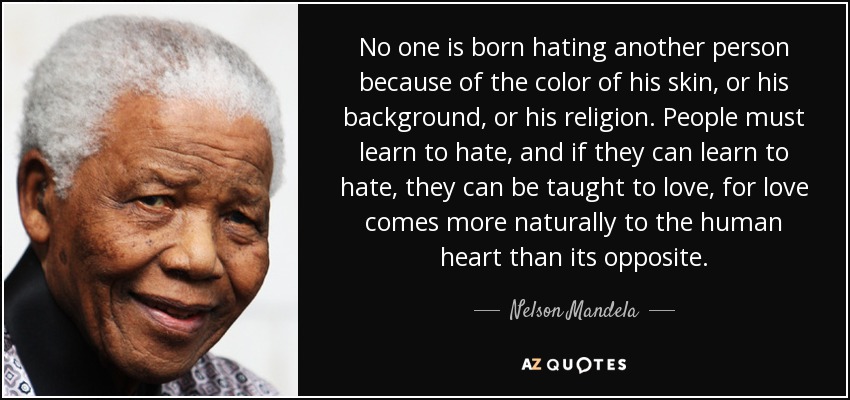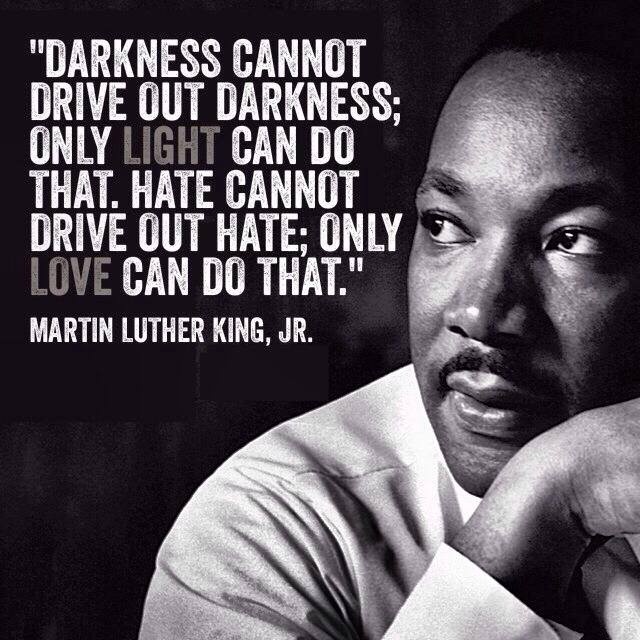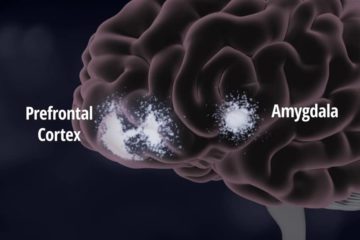If you haven’t watched it yet, you need to see it. You need to educate yourself by getting inside the mindset of the white supremacists who would have us believe that their tribe is going to save this country. Look, I don’t like the news, either, but sometimes we need to pay attention. That’s what having a participatory democracy requires — participating.
So here it is:
Thank you to the journalists who brought this to us. Thank you.
WTF do we do now?
We have a U. S. president who has legitimized racism and hate speech, a president who doesn’t seem to have any moral compass and who has a certifiable narcissistic personality disorder. Now, be really, really clear about this: The problems in the United States around race and hate *did not begin* with the Trump administration. As a (Republican) commentator I heard on NPR said recently, he simply “took the lid off the sewer.” He made it okay for people to throw sewage, but the sewage was there long before he was.
It’s upsetting — it’s SO UPSETTING — to see what happened in Charlottesville, and to think about what that sequence of events means for our country. And I confess, there’s this part of me (and it’s not even a very small part of me) that couldn’t help but cheer on the anti-racism protestors who chased the white supremacist spokesperson away from the microphones in Charlottesville and almost mobbed him the day after the car struck and killed Heather Heyer.
But while an outburst of anger directed at someone who wholeheartedly endorses marching down a street and shouting vile things like “Jews will not replace us” feels justified and even cathartic, it’s not the right response.
What happens when you pour anger on anger? You get more anger.
I know that these days, a lot of liberal people are of the attitude, “Enough Mr. Nice Guy. We have to fight fire with fire.”
Riiiiiiight. And when was the last time you ever saw anger added to anger DE-ESCALATE a situation? When have you seen anger END an argument instead of prolonging it?
(Hint: The answer is never.)
Whoa — stop — hold on. Something important to clarify before going any further: I’m all for peaceful protests, and lots of them. I’ve marched in rallies and held placards before myself, and I will again. I totally support the Black Lives Matter movement. And I support the people who came out in Charlottesville to (peacefully) counter-protest the Nazis. In fact, Charlottesville has me thinking that I want to go to *more* protests.
But I refuse to protest out of anger. I will protest out of love.
You know what I thought of when I heard the Republican commentator on NPR say that Trump “took the lid off the sewer”? Ghostbusters 2.
No, seriously — hear me out.
Do you remember that movie? Running beneath the city of New York was an ocean of paranormal slime. Every fight, every shouting cab driver, every argument on the subway made the slime stronger, bigger, meaner.
Here. This clip explains it better than I can:
Alt-right groups are like “mood slime”
You know what would delight the alt-right most of all? Our outrage. Our anger. They are outrage vampires, feeding on our anger and getting stronger from it.
They’ll gladly slurp up all of our “bad vibes” eagerly, and they’ll use it to galvanize their base, strengthen their position, and pour out even more vitriol against us. Every time some young white guy sitting in front of his computer in his mama’s basement and on the edge of tattooing a swastika on his arm sees liberals chasing a spokesperson away from a microphone, surrounding that spokesperson, punching him while he’s down, that young man gets one inch closer to becoming truly radicalized. Truly Nazi-fied.
So we can’t respond to hate with more hate. It doesn’t work. It will create more radicals instead of fewer. That leaves us only one option, and it is NOT an easy option…
We have to respond to hate with love.
Sigh. It’s hard. It’s tiring. It takes a sh**load of patience. And we eventually end up asking the question, “Why do *I* always have to be the one to take the high road? Why can’t it be them this time?”
Remember our role models
Our former president, Barack Obama, tweeted this Nelson Mandela quote after the tragedy at Charlottesville:

And then there is this personal favorite from Dr. Martin Luther King, Jr.:

Our fallback position after what happened in Charlottesville cannot be to respond to the hatred that the alt-right espouses towards minorities with hatred towards the alt-right. We can hate what they stand for and we can hate their views; we cannot allow ourselves to hate the people who hold those views.
Why can’t we? Two reasons:
1) Because that’s not really who we want to be. We don’t want to be people putting hate INTO the world — do we? No. We want to be the ones who take hate OUT of it.
2) Because hate doesn’t work.
Hate doesn’t work. Love does.
We doubt that love works. We see the sewage making progress up our street — hell, we see it winning freaking presidential elections — and we think, “The sewage isn’t about love. So why should *I* be about love?”
We feel that love is naive. Love makes us weak. We feel that love represents a child-like trust that makes us vulnerable to those who would harm us.
And so we decide that love, respect, and mutual understanding don’t work — we already tried to respond to unreasonableness with reasonableness, to things that are illogical with logic, and too often it was like banging our heads against the wall. So we decided, “F*** love. F*** mutual understanding. These white supremacist motherf***ers want a war?! I’ll give them a war!”
But when we fight fire with fire, we just end up burning everything down.
If we ask ourselves, “What has the power to heal the divisions we face? What’s going to create long-term change?”, it’s not going to be policies and Supreme Court judgments — ALTHOUGH these things ARE important. But when it comes to true long-term change, society will only experience a sea change when our respect and willingness to listen to one another deepens.
If you confront an angry man with more anger, you will never change his mind (or an angry woman, for that matter). You will only change his (or her) mind when you listen respectfully, engage, and try to show basic human kindness and decency (that’s what I mean by “love,” by the way — it starts with basic human kindness).
Take a look at this:
I think Daryl Davis is an interesting man. He is an African American musician who has a “hobby” of befriending white supremacists. Over the years, through building these friendships, he’s convinced dozens of Klan members to leave the KKK. His garage is filled with Klan memorabilia from ex-members who have changed their views as a result of their friendship with Davis.
It’s easiest to hate someone you don’t know
Daryl Davis is not without criticism. His biggest critics, in fact, are typically African Americans, probably most of all African American political activists who believe his attempts to befriend Klan members isn’t just misguided but is actually detrimental.
But I think that his guiding philosophy, which is, “How can they really hate me if they don’t even know me?”, has a lot to teach us about how racism and similar societal ills actually manage to disappear.
Now — societal change *definitely* requires activists, too, whose activism bring the important element of awareness to things like police brutality and systemic injustices. We *need* activists. We need *more* activists.
Thanks to queer activists, for example, more and more LGBTQ people felt comfortable living lives out of the closet. The fact that I can live an “out” life today is something I can largely thank the activists of the generation before mine.
But it was through more queer people being out that societal views on LGBTQ people started to shift. Because more of us live our lives out of the closet than ever before, straight people today are so much more likely to know a queer person. They have an aunt who’s a lesbian, a neighbor who’s a gay man, a colleague who’s trans. They have a chance to ** get to know people who are different from them ** and start having actual conversations, to discover things that they have in common with one another.
We need more activists, yes, but we also need more Daryl Davises if we want the alt-right to start shrinking. We need to be willing to having kind-hearted, respectful conversations with people we disagree with. We need to let them get to know us — and we, in turn, need to take the time to get to know them. We might find out something that surprises us: In the end, we’re all human beings, and there are more things that make us similar than things that make us different.



0 Comments